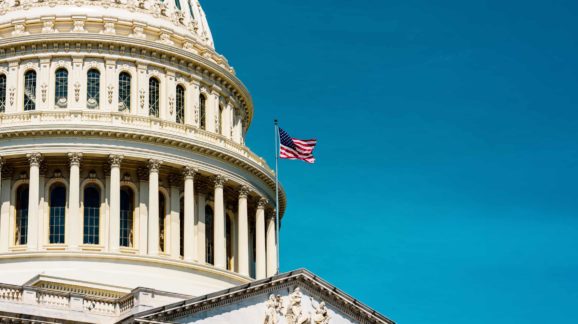Tell Us It Ain’t So, Joe

Photo Credit: Getty
There is at least one news report that Sen. Joe Manchin (D-WV) has continued negotiating with the White House on a slimmed down version of the big-spending Build Back Better bill, and is willing to support funding for universal preschool and for a big climate and green energy package—that’s big, as in up to $555 billion over 10 years. If the report is true, then it may be worth reviewing how that $555 billion would be spent.
The House version of the bill, H.R. 5376, which passed the House on a 220 to 213 vote on November 19, includes up to $325 billion in extended and new tax subsidies for a long list of politically favored energy technologies. Wind and solar subsidies would be extended for 10 years at an estimated cost of $140 billion, even though both industries have claimed for years that they now produce electricity at lower cost than conventional power plants. Existing nuclear plants would get subsidies to counteract the wind and solar subsidies (subsidies to counteract the negative effects of other subsidies may be the nuttiest idea in a bill full of them).
There are also taxpayer handouts for carbon capture and storage, geothermal energy, energy storage, reducing landfill gas, “clean” hydrogen, “clean” aviation fuel, and certain types of hydropower. Many of these subsidies have a base rate plus a complicated set of bonuses if the project pays prevailing wage rates, meets domestic content requirements, and uses qualified apprentices.
Nearly $100 billion would be spent over the next 10 years on subsidies for purchasing electric vehicles (EVs). Buyers of new EVs could get up to $12,500 if they bought one of the most politically correct EVs—that is, one produced in the U.S. by union labor. Buying a used EV would also qualify for a handout of up to $2,500. Electric motorcycles, E-bicycles, and various types of commercial electric vans and trucks would also be subsidized by taxpayers.
The House bill would spend over $6 billion for EV charging infrastructure and $11 billion for the high voltage transmission lines needed to connect big wind and solar installations with the urban areas that use most of the electricity. There is a long list of targeted credits for energy efficiency improvements for residential, commercial, and manufacturing properties.
The Center for American Progress estimates that funding in H.R. 5376 related to environmental justice totals $160 billion: including:
- $3 billion in block grants for climate and environmental justice project;
- $29 billion for grants to nonprofit financial institutions to fund greenhouse gas reductions, of which $15 billion is reserved for low-income and disadvantaged communities; and
- $30 billion for a new make-work jobs program initially called the Civilian Climate Corps, but now buried in AmeriCorps.
Other environmental justice-related funding is included in some of the subsidies already mentioned. For example, solar projects providing power to low-income residential buildings would qualify for a 20 percent bonus credit.
After Sen. Manchin announced on Fox News on December 19 that he could not support the bill, he released a statement explaining that he cannot support massive new spending at a time of high inflation and with the national debt now at $29 trillion. About the climate package, he said that it would “risk the reliability of our electric grid and increase our dependence on foreign supply chains.” Given these reasons, it’s hard to see how he is going to explain his support of this half trillion-dollar list of wasteful spending, boondoggles, and payoffs to special interests.